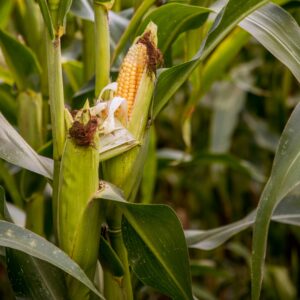
Agrochemicals are an intervention that assists farmers grow their product – be it fruit, grain, vegetable or livestock – and for use in the various forms of processing and post-harvest treatments.
Choosing the right chemicals can be bewildering, and a wrong choice can lead to marketing and financial problems. The misuse of agrochemicals too introduces a negative note. Many of them are toxic with potential hazards for the environment and wildlife, and humans. For this reason, trade in chemicals is well regulated and great emphasis is placed on the correct handling and storage of chemicals. Agrochemicals help ensure food security.
In addition to the training courses mentioned on the “Crop protection” page, the following is undertaken:
For advice on cases of poisoning:
Read about the Africa ChemObs project on the UN Environment website, www.unenvironment.org/explore-topics/chemicals-waste/what-we-do/environment-health-and-pollution/africa-chemobs-project.

See our blog “New regulations published for Agricultural Remedies in South Africa” (2023, October 31).
Department of Forestry, Fisheries and the Environment (DFFE) www.dffe.gov.za The Extended Producer Responsibility Scheme for the Pesticide Sector (March 2023) forms part of the National Environmental Management: Waste Act: NEMWA (Act No 59 of 2008). The regulations have been promulgated and all registration holders (agricultural remedies) must comply with the EPR Regulations. See www.gov.za/documents/national-environmental-management-waste-act-nemwa-extended-producer-responsibility-scheme
The Department of Trade, Industry & Competition (the dtic) has previously provided very useful overviews of the chemicals sector as it set out its interventions to encourage growth. Find the notes on the chemicals sector on www.thedtic.gov.za.
Department of Agriculture, Land Reform and Rural Development (DALRRD) Registrar: Act No. 36 of 1947 www.dalrrd.gov.za
In South Africa all chemicals used for the control of any pest or disease on a plant must be registered for such use under Act 36 of 1947 (the Fertilisers, Farm Feeds, Agricultural Remedies and Stock Remedies Act). An amendment to this Act (No R.1716 of 26 July 1991) prohibits the acquisition, disposal, sale or use of an agricultural remedy for a purpose or in a manner other than that specified on the label on the container.
The list of registered products is updated regularly with new agrochemicals introduced and some removed. The use of the old ones is illegal and it is in the producer’s interest to keep up to date with the list of registered agents.
DALRRD: Agriculture Inputs Control
Documents, guidelines etc and contact details for registration enquiries, and Compliance and Enforcement can be found on the website.
The Foodstuffs, Cosmetics and Disinfectants Act (Act No. 54 of 1972) determines the maximum residue levels of agricultural chemicals that may occur on food products in South Africa and is applied by the Department of Health (see www.health.gov.za).
The Department of Science & Innovation is involved with the Post Harvest Innovation Programme. See www.postharvestinnovation.org.za.
The South African Bureau of Standards (SABS) has compiled a national standard which summarises all legislation which pertains to the handling and storage of chemicals on farms – SANS 10206. It applies to all kinds of farming, including fruit, grain, vegetable and livestock. See www.sabs.co.za (find the “Services and sectors” option).
Further reference:
Role players
Training and research
Further reference:
Role players
Training and research
Find the monthly Chemical and fertilizer report on the Grain SA website, www.grainsa.co.za.
Registered chemicals in South Africa are published in guides such as A Guide for the Control of Plant Diseases and A Guide for the Control of Plant Pests issued by the DALRRD on a regular basis. Contact 012 319 7141 or write: Resource Centre, Private Bag X144, Pretoria 0001.
The following publications are available from DALRRD’s Resource Centre, and can also be accessed at www.old.dalrrd.gov.za (take the “Resource Centre” option):
Publications available from CropLife SA:
Production guidelines like those by the Agricultural Research Council (ARC) campuses include the latest information on agrochemicals. In the case of grain farmers, the Maize Information Guide and Manual for the production of small grains, published every year apply. The publications are free of charge for producers. They can also be downloaded at www.arc.agric.za.
A database of agrochemicals and related services for South Africa exist at www.agri-intel.com (get those maximum residue levels right!)
Deloitte chemicals-related documents can be downloaded at www2.deloitte.com/za/en/pages/manufacturing/solutions/chemical.html.
International:
Some articles: